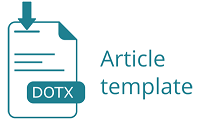Adolescent-Parent Communication About Reproductive Health Among Junior High School Students
DOI:
https://doi.org/10.32807/jkp.v18i1.1191Keywords:
Adolescent-Parent communication, Reproductive HealthAbstract
Adolescent-parent communication about reproductive health is still considered taboo. This view prevents students from telling their parents about their health problems. This study aimed to analyze the relationship between factors related to adolescent-parent communication about reproductive health. This research method is analytically observational with a cross-sectional approach. Respondents involved were students of classes VII and VIII, totaling 117 people. The results showed no relationship between gender (p-value= 0.182, OR (95%CI)= 0.846-3.686), information access (p-value= 0.561, OR (95%CI)= 0.603-3.314), gender compatibility (p-value= 0.302, OR (95%CI)= 0.707-5.020), and parental credibility (p-value= 0.100, OR (95%CI)= 0.950-4.370) with adolescent-parent communication about reproductive health. Adolescent-parent communication about reproductive health, which is low and high, has almost the same percentage—of recommendations to parents to improve communication with adolescents regarding reproductive health further. The school also needs to add reproductive health education activities.
References
Arifah, I., & Kusumaningrum, T. A. I. (2022). Intensi Menunda Hubungan Seksual Pranikah Pada Mahasiswa di Solo Raya. Higeia Journal of Public Health Research and Development, 5(3), 227–238.
Arifah, I., & Sharfina, M. F. (2018). Hambatan Akses Informasi Kesehatan Reproduksi pada Mahasiswa Kesehatan Universitas Muhammadiyah Surakarta. Jurnal Kesehatan, 11(2), 65–74.
Auri, K., Jusuf, E. C., & Ahmad, M. (2022). Strategi Layanan Kesehatan Reproduksi pada Remaja: Literature Review. Faletehan Health Journal, 9(01), 20–36. https://doi.org/10.33746/fhj.v9i01.325
Bergström, A. S., Guevara, W. J. U., Colombo, P. E., & Källestal, C. (2018). Knowledge about Sexual and Reproductive Health among School Enrolled Adolescents in Tololar, Nicaragua, A Cross-Sectional Study. JPHI, 1(2), 27–38.
BPS, BKKBN, Kementerian Kesehatan, & USAID. (2017). Survei Demografi dan Kesehatan Indonesia.
Febriana, A., & Mulyono, S. (2020). Parent-Adolescent Communication On Reproductive Health and Sexual Of Adolescent. Jurnal Keperawatan, 10(2), 81–85. https://doi.org/10.22219/jk.v10i2.8063
Finlay, J. E., Assefa, N., Mwanyika-Sando, M., Dessie, Y., Harling, G., Njau, T., Chukwu, A., Oduola, A., Shah, I., Adanu, R., & Bukenya, J. (2020). Sexual and reproductive health knowledge among adolescents in eight sites across sub-Saharan Africa. Tropical Medicine and International Health, 25(1), 44–53. https://doi.org/10.1111/tmi.13332
Ilmiawati, H., & Kuntoro, K. (2016). Pengetahuan Personal Hygiene Remaja Putri pada Kasus Keputihan. Jurnal Biometrika Dan Kependudukan, 5(1), 43–51. https://doi.org/10.20473/jbk.v5i1.2016.43-51
Ilmy, N. Z., & Safrudin, B. (2021). Systematic Review Hubungan Komunikasi Orang Tua dan Anak dengan Pengetahuan Kesehatan Reproduksi pada Remaja. Borneo Syudent Research, 2(3), 1669–1679.
Ismiyati, & Rumiatun, D. (2019). Model Komunikasi Antara Orang Tua Dan Remaja Tentang Kesehatan Reproduksi. Jurnal Media Kesehatan, 12(2), 090–101.
Ivanova, O., Rai, M., Mlahagwa, W., Tumuhairwe, J.,
Bakuli, A., Nyakato, V. N., & Kemigisha, E. (2019). A cross-sectional mixed-methods study of sexual and reproductive health knowledge, experiences and access to services among refugee adolescent girls in the Nakivale refugee settlement, Uganda. Reproductive Health, 16(1), 1–11. https://doi.org/10.1186/s12978-019-0698-5
Kusheta, S., Bancha, B., Habtu, Y., Helamo, D., & Yohannes, S. (2019). Adolescent-parent communication on sexual and reproductive health issues and its factors among secondary and preparatory school students in Hadiya Zone, Southern Ethiopia: Institution based cross sectional study 11 Medical and Health Sciences 1117 Public . BMC Pediatrics, 19(1), 1–11.
https://doi.org/10.1186/s12887-018-1388-0
Kyilleh, J. M., Tabong, P. T. N., & Konlaan, B. B. (2018). Adolescents’ reproductive health knowledge, choices and factors affecting reproductive health choices: A qualitative study in the West Gonja District in Northern region, Ghana. BMC International Health and Human Rights, 18(1), 1–12. https://doi.org/10.1186/s12914-018-0147-5
Laswini, I. W. (2022). Pengetahuan , Sikap , dan Sumber Informasi Dengan Perilaku Personal Hygiene Saat Menstruasi Pada Remaja Putri. SIMFISIS Jurnal Kebidanan Indonesia, 02(61), 228–236. https://doi.org/10.53801/sjki.v2i1.55
Lukman, S. (2021). Faktor demografis untuk meningkatkan informasi, edukasi, dan komunikasi kesehatan seksual dan reproduksi. Jurnal Kajian Komunikasi, 9(1), 66. https://doi.org/10.24198/jkk.v9i1.32722
Septiani, R. (2019). Media Seksual Remaja Terhadap Perilaku Seksual Remaja. Jurnal Menara Medika, 2(1), 13–21. https://jurnal.umsb.ac.id/index.php/menaramedika/index
Widiarti, M. B. O., Megaputri, P. S., & Armayanti, L. Y. (2023). Akses Informasi melalui Orang Tua dapat Meningkatkan Pengetahuan Remaja tentang Kesehatan Reproduksi. Jurnal Ilmiah Permas, 13(1), 307–314.
Wulandari, A., Sumartini, N. P., & Ahmad, H. (2019). Model of Anticipation Guidance Through Family Centered Care (FCC) to Increase Family. Jurnal Kesehatan Prima, 14(1), 24–30.
Zakaria, M., Xu, J., Karim, F., & Cheng, F. (2019). Reproductive health communication between mother and adolescent daughter in Bangladesh: a cross-sectional study. Reproductive Health, 16(1), 114. https://doi.org/10.1186/s12978-019-0778-6




